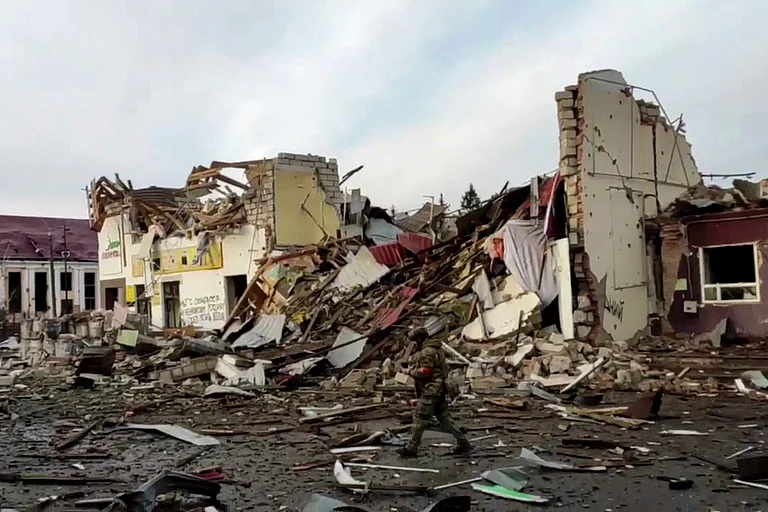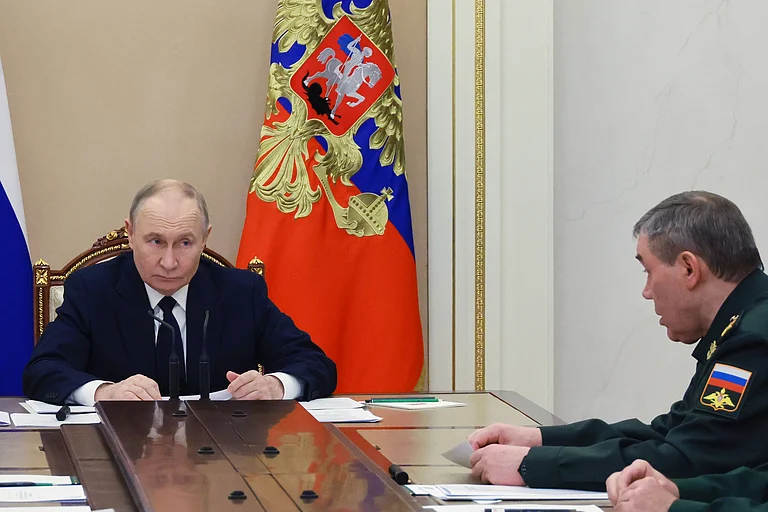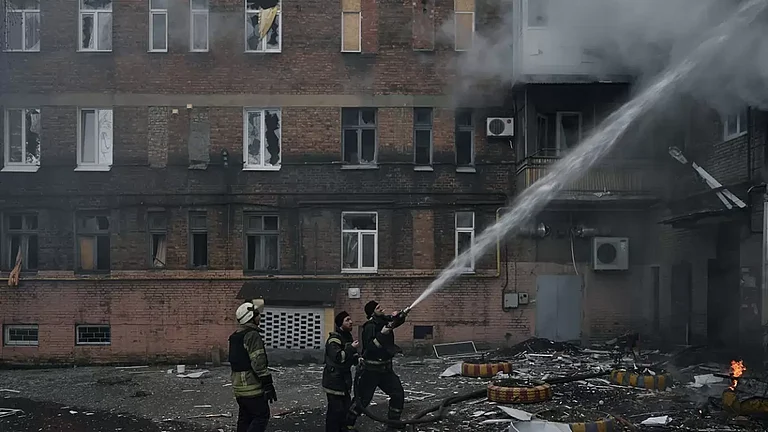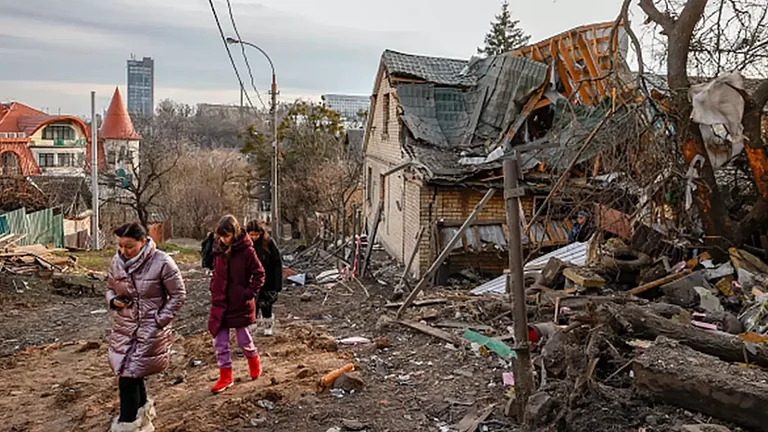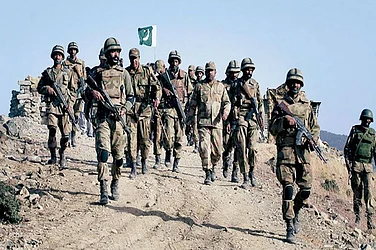Without putting an end to the war, it is tough to put an end to people’s suffering. As both Russian President Vladimir Putin and Ukrainian President Volodymyr Zelenskyy continue their fight, the people caught in the middle look at the chances of negotiations with a glimmer of hope.
The conflict, which has been going on since the Soviet Union’s dissolution in 1991, further escalated when Russia annexed Crimea in 2014. Soviet leader Nikita Khrushchev had gifted Crimea―which was part of the Soviet Union―to Ukraine for administrative purposes. Following this, the increasing threat of the North Atlantic Treaty Organisation’s (NATO) expansion right to Moscow’s doorsteps led to Russia’s invasion of Ukraine in February 2022.
The fact of the matter is that the war is actually a continuation of the Cold War. Though Communism is no longer a threat, there is continued rivalry between the US and Russia. US President Joe Biden and President Putin are both at heart Cold War warriors.
More than two years after the invasion, the attacks by Russia on Ukraine and vice versa continue. Last month, for the first time, Zelenskyy confirmed that the country’s military forces are actively operating within Russia’s Kursk region. However, Putin had asserted that his army would carry on its offensive in eastern Ukraine regardless of Kyiv’s attack, which he termed a “large-scale provocation”.
Indeed, the fight is not one-way. “Both sides―Russians and Ukrainians―are involved in this and the only way out is to find a political settlement. The deal will certainly involve Crimea and Ukraine’s eastern and southern provinces―Luhansk, Donetsk, Zaporizhzhia and Kherson―which is Russia’s access to the Black Sea. Russians won’t give up their only access to the sea and the West is making it difficult for them to access it,” says Former Indian High Commissioner G Parthasarathy.
Notably, Washington and Europe have been supporting Zelenskyy, providing a sea of sophisticated armoury at Kyiv’s disposal. However, this might haunt Europe back at some point down the line. As far as peace talks are concerned, it is doubtful that the Ukrainian president can call for negotiations without the US and NATO’s approval. The West has made high-level investments in its bid to back Ukraine so that Kyiv can fight and regain control of the territory ceded to Moscow.
“If the West pushes Kyiv to go too far, then there will be serious consequences from Putin,” says Parthasarathy, who once served the Indian Mission in Moscow. He adds that we must not forget that Russia has more nuclear weapons than the US. As per the Federation of American Scientists, the US possesses 5,044 nuclear warheads, while Russia has a total inventory of 5,580 warheads.
The war has led to a humanitarian crisis in Ukraine. The effects of the war include displacement, deaths, injuries, disrupted education and healthcare facilities, among others. As per the United Nations, over nine million people have been displaced in this war, of which around 3.5 million have been displaced internally in Ukraine and around six million have sought refuge in European countries.
According to the United Nations, 14.6 million people in Ukraine need humanitarian assistance. Several other non-profit organisations, human rights groups and humanitarian action groups―Polish Humanitarian Action (PAH), CARE, Red Cross and UNICEF―have been engaged in providing assistance and aid materials, including food, education, clothes, shelter and medicinal help to Ukrainians and those in need.
Ukraine, once a part of the Soviet Union, is hoping to get rid of the Russian narratives from textbooks
“Say, once a peace settlement happens and some kind of stability comes in both the nations’ relationship, what Ukrainians will do with a laser focus then is to remove any element of Russian influence in society, in their education and various other sectors,” says Harsh V Pant, Vice President of Studies and Foreign Policy at the Observer Research Foundation. Pant adds that Ukraine is learning that giving Russia leverage over itself doesn’t help and it creates a problem. “This attraction towards Europe that you are seeing is only going to increase now,” he says.
When will the war end? Parthasarathy asserts that Russia will not give up, saying that Russians are very firm when it comes to their land. To bring an end to the war through settlement, Russia will want access to the sea and will insist on sovereignty of the areas it wants.
Peace is the only way out for the people stumbling through crises every day. Is there a possibility for a peace settlement anytime soon? Even if there is, it is not certain. Parthasarathy says, “If Donald Trump wins in the US Presidential elections, there will be a settlement for sure.”
Meanwhile, both Putin and Zelenskyy have also called for India’s involvement in peace diplomacy. During his recent two-nation visit to Ukraine and Poland, Prime Minister Narendra Modi maintained that “a solution cannot be found in the battlefield”. Modi had reiterated India’s efforts for humanitarian aid and peace.
Pant, however, says that even if a peace negotiation happens tomorrow, what is not going to disappear is Ukrainians’ sense that “Russians actually invaded us”.
Notably, while Ukraine has a maximalist position―to take back Crimea―Russia also stands firm on not giving up the region. “Putin represents Russian nationalism,” Parthasarathy says, asserting that Russians will never agree to lose, they won’t give up.
Pant asserts that people, indeed, remain the most affected in this war, adding that “their response will shape the long-term consequences of the world”. He notes that whether Russia wants to claim Ukraine as its own or not, “the fact of the matter is that at the people’s level, at the emotional level, whatever limited connection you used to have has been destroyed. And I think that is the real consequence of this war for Russia.”
Putin may have thought that the war would last for a few weeks, but it has now gone on for two and a half years. “Of course, Ukraine has been fighting with American and Western support, but the sense of resistance comes from the people,” says Pant.
Parthasarathy, meanwhile, recounts the days of his posting in Moscow, and says it is sad to see the situation today, as everyone was living happily back then. The question of why people lose their lives in both the nation’s respective offensive remains. “In my view, there are others provoking the fight,” Parthasarathy adds.








